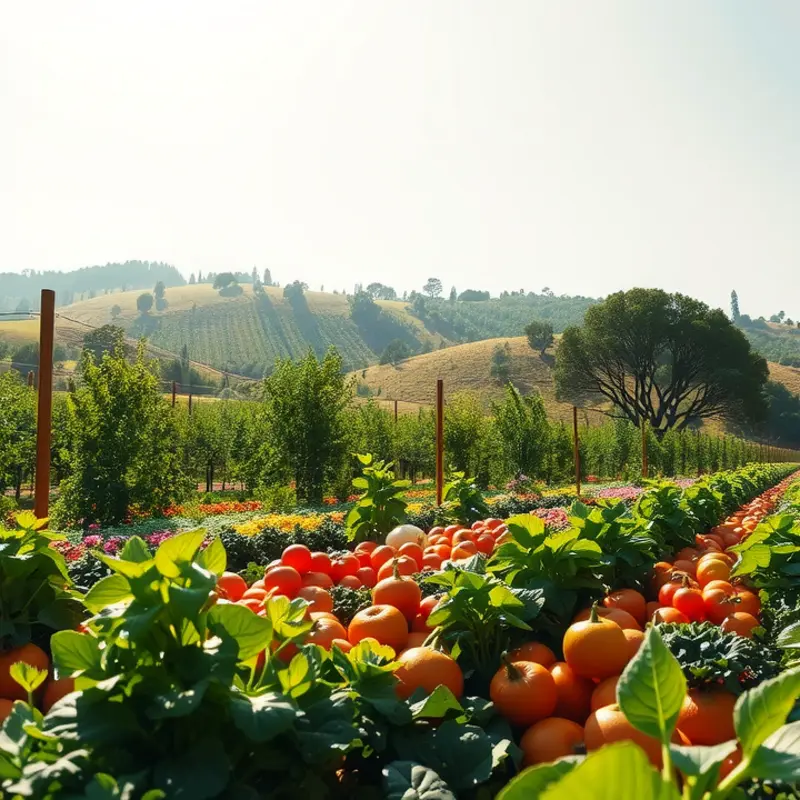Garlic has long been hailed as a natural remedy for various ailments, including the common cold. But can this pungent bulb truly prevent or cure colds, or is it simply an age-old myth? Scientific studies and anecdotal evidence often swirl around this question. Understanding garlic’s properties and their implications for immune health can help navigate the often confusing landscape of dietary decisions during cold and flu season.
The Science Behind Garlic: What Makes It Special?

Garlic, a staple in kitchens worldwide, is renowned not just for its flavor but also for its purported health benefits. Central to garlic’s medicinal properties is allicin, a sulfur-containing compound that emerges when garlic is crushed or chopped. Allicin is a major contributor to garlic’s distinct aroma and is believed to be responsible for its therapeutic effects.
Allicin exhibits antimicrobial and antiviral properties. This is crucial since colds are caused by viruses, and any potential natural remedy must address these pathogens. The compound works by attacking the cell membranes of harmful microbes, reducing their ability to thrive and multiply.
Several studies have highlighted allicin’s role in improving immune function. Research shows that it can potentially enhance the response of immune cells, making the body more resilient against infections. In one study, individuals who took garlic supplements during cold season experienced fewer colds and shorter recovery periods.
Beyond allicin, garlic also contains other beneficial compounds such as sulfur and selenium. These components further bolster the immune system. Sulfur compounds, for example, are known to support the production of antioxidants, which help protect cells from damage. Selenium is crucial for maintaining immune health and plays a role in reducing inflammation, a common symptom during colds.
Despite these promising findings, some in the scientific community remain skeptical. They argue that while garlic’s potential is notable, its effects can vary significantly based on how it’s prepared or consumed. Fresh garlic has the highest allicin content, whereas supplements might not always contain active allicin by the time they are consumed.
Additionally, the concentration of allicin necessary for a therapeutic effect might be much higher than what is typically consumed in a dietary setting. Therefore, while garlic can be a part of a lifestyle aiming to reduce cold occurrence and severity, it should not replace conventional medicine. It’s advisable to maintain a balanced diet and consult healthcare professionals when considering supplements.
In conclusion, while garlic shows potential as a cold remedy due to its active components, further research is needed. This will help definitively establish its efficacy and understand the best methods of preparation and consumption. Incorporating garlic into a varied and balanced diet might contribute to colds management but acknowledging its limitations is equally important.
Garlic and Colds: What the Research Says

The reputation of garlic as a natural remedy for colds has prompted numerous scientific investigations. Several studies have sought to explore whether garlic can indeed reduce the incidence or severity of the common cold.
A key study published in 2001 in the journal Advances in Therapy examined 146 participants over a 12-week period during the cold season. The research aimed to assess the effect of a daily garlic supplement compared to a placebo. Results indicated that those taking the garlic supplement experienced fewer colds and a shorter duration of symptoms compared to the placebo group. Participants on garlic treatment also reported a reduced risk of contracting colds, suggesting garlic’s potential as a preventative measure.
Another pivotal study conducted in 2012, published in Clinical Nutrition, further explored garlic’s potential benefits. In this trial, 120 healthy volunteers received either a high-dose garlic supplement or a placebo over a period of three months. The findings revealed that the garlic group experienced 21% fewer colds and felt symptoms for a reduced length of time. This study supported the idea that garlic might boost immune function, possibly due to allicin, a compound found in crushed garlic that exhibits antimicrobial properties.
Despite these promising results, it’s essential to address common misconceptions. Garlic is often believed to cure colds outright. However, scientific evidence primarily supports its role in prevention rather than treatment. Garlic may help lessen symptoms’ duration, but there’s no conclusive evidence it’s a standalone cure.
The current scientific consensus suggests that while garlic consumption could aid in reducing cold incidence, it should be part of a broader approach to maintaining health during cold season. A balanced diet rich in varied nutrients can be more effective in supporting overall immune function. Functional foods and herbs, such as those discussed in this guide, might complement the benefits offered by garlic.
In summary, garlic appears to have some merit as a preventative measure against colds, though claims of it being a cure remain exaggerated. Incorporating garlic as part of a health-conscious diet may offer some protective benefits, particularly in fortifying the immune system ahead of cold season challenges.
Final words
Garlic holds potential health benefits, primarily due to its rich composition of antioxidants and antimicrobial properties. While it may not be a guaranteed cure for colds, incorporating garlic into your diet could support overall immune health. It is essential to recognize that garlic’s effects may vary among individuals, and it should not be relied upon as a sole remedy. Instead, think of it as part of a broader approach to a healthy lifestyle during flu season. Ultimately, maintaining a balanced diet, practicing good hygiene, and consulting healthcare professionals when needed remains crucial during times of illness.








